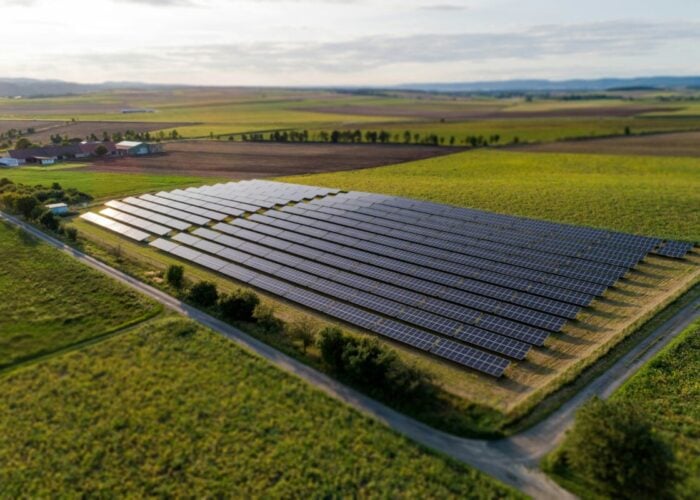One of India’s largest solar developers, Welspun, is entering the country's rooftop solar market.
Welspun has already commissioned three rooftop projects totalling 792kW in Haryana and Uttar Pradesh.
Try Premium for just $1
- Full premium access for the first month at only $1
- Converts to an annual rate after 30 days unless cancelled
- Cancel anytime during the trial period
Premium Benefits
- Expert industry analysis and interviews
- Digital access to PV Tech Power journal
- Exclusive event discounts
Or get the full Premium subscription right away
Or continue reading this article for free
The newly commissioned rooftop projects include one at the Indian Institute of Technology Kanpur. The 192kW installation will also be used as a teaching facility.
Ansal University’s 100kW system will provide more than 2,000 students and staff with clean energy, and Medanta Medicity Hospital will have a 500kW solar carport, the three projects will generate a cumulative 1,174MWh annually.
Welspun is aiming to install 1.75GW of renewable energy projects in the next three years, including the 792kW just commissioned and 328MW of commissioned utility-scale solar projects in Maharashtra, Tamil Nadu and Punjab.
Vineet Mittal, managing director at Welspun said it’s “heartening to see that more and more institutions are seriously taking accountability towards the environment by opting for clean energy generation” and that rooftop solar “presents interesting opportunities of growth and is bound to be the next big thing in the solar energy business”.
The chief technology officer of Indian manufacturer and installer, Tata Power Solar, Arul Shanmugasundaram said last month commercial rooftop solar will reach grid parity before any other solar segment in India, and will be the cheapest form of energy for customers by 2024.
In September Tata Power Solar and analyst, Bridge to India released a report stating solar in India is already cost-competitive with imported coal, and will be level with domestic coal generation by 2019. Bridge to India predicted an “inevitable solar revolution” as a result.
According to the report, commercial rooftop solar installations will reach cost parity with imported coal next year, reaching complete parity for both the cost of generation (levelised cost of electricity, or LCOE) and also to end users (levelised cost of power, or LCOP) by 2024.
Earlier this year Delhi took the first steps towards what could potentially be a huge rooftop solar market by publishing regulations for a new net metering policy.
In response to net metering, two Delhi distribution companies owned by BSES and Tata Power Delhi were directed to upgrade grid infrastructure as soon as possible so that rooftop solar customers can sell power they generate to the grid.
After telling solar manufacturers to run at full capacity, energy minister Piyush Goyal announced the national solar target is to be raised to the very ambitious 100GW of solar by 2022 last month.
India is looking to transform its energy infrastructure, as the government seeks to bring electricity to all of its 1.25 billion citizens.






